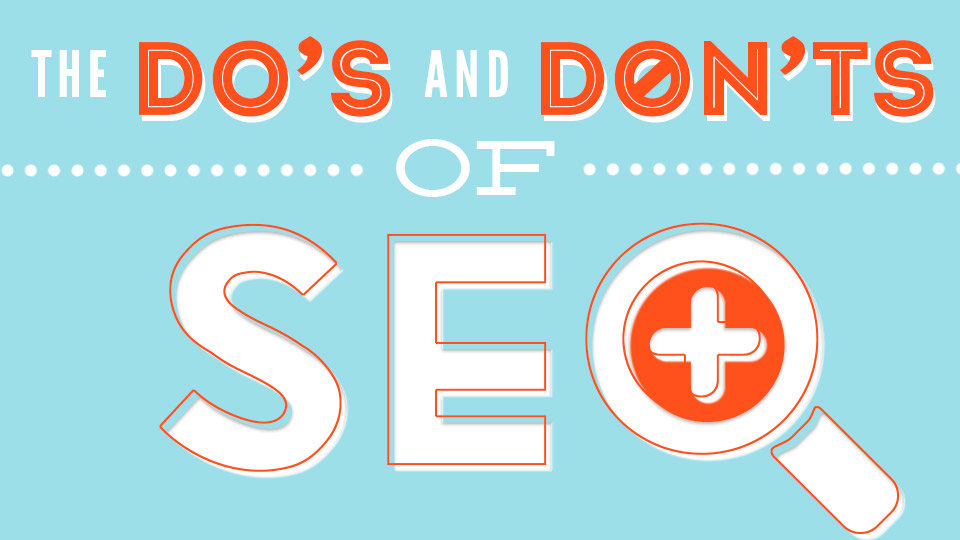The Dos and Don'ts of SEO
By Kristen Shoates
Ah, Search Engine Optimization – digital marketing’s great mystery. In many ways, the premise is simple: people type search terms into a search engine, your site has those search terms on it, and therefore, it shows up in searches for those terms. But in actuality, SEO is a complicated process that factors in coding, content, user experience, analytics and links from other sites to create your page authority and search engine ranking. Add in constantly changing algorithms and it’s enough to give even the savviest of digital marketers a headache.
But with Google and other search engines being the new yellow pages, the importance of SEO can’t be ignored. While the complexities of it can’t be captured in a single blog post, there are a few basic dos and don’ts that can help you lay a foundation of great SEO.
Do: Put keywords in titles, headlines and image tags.
Placing your most important keywords in these key pieces of code on the site (for your HTML gurus, that’s in the title, h1, h2 etc. tags) can have major impact on your search rankings. Google pays special attention to these locations on your site when crawling for search results.
Don't: Keyword overload.
With that logic, wouldn’t it make sense to put as many keywords as possible in tags and hidden code? Not so fast. Google is also smart enough to catch when you’re stuffing your site with keywords. Create logical phrases for these sections and use keywords appropriately – at a level that would make sense to the end user – to avoid being penalized for having too many on your site.
Do: Release regular content.
Where keywords in code used to be the main factor in SEO, in recent years Google has gotten savvy enough to scan all of your site’s content for relevant information. High-quality, frequently-updated content that users interact with regularly makes search engine bots take notice. This is part of why pieces of dynamic content such as blogs, content marketing, social media, news articles and media are so important: not only do they enhance the user experience, but distributing new content on a regular basis can really boost your SEO.
Don't: Spam.
Remember that at the end of the day, you’re building a site for humans, not for Google. You want to create content that people want to read at a frequency they can interact with rather than simply creating content for SEO fodder. Create a strategic editorial calendar, write high-quality content and distribute it on a regular basis. That’s the core of a good content marketing strategy, with the added bonus of an SEO boost.
Do: Seek link backs.
Another major factor in search engine rankings is having credible sites link back to your site. While any link back can help, the higher the page authority of the site linking back to you, the more benefit it will have on your search ranking. Sites with .gov or .edu in the URL have high authority, and media and news outlet websites also have high search credibility. Public relations efforts to garner media and blog coverage can help increase your link backs, and asking partners – especially government or higher education partners – to link to your site can make a big difference in your page authority.
Don't: Let illegitimate sources link back to you.
Not all link backs are good link backs. There are spam sites that will link back to you, and these can actually hurt your ranking. Using Google Webmaster Tools, you can go in and “disavow” these links. While it doesn’t remove the link, it raises the flag and lets Google know that you know they’re not legit.
What does your current SEO strategy include? Share your favorite SEO tool below!













